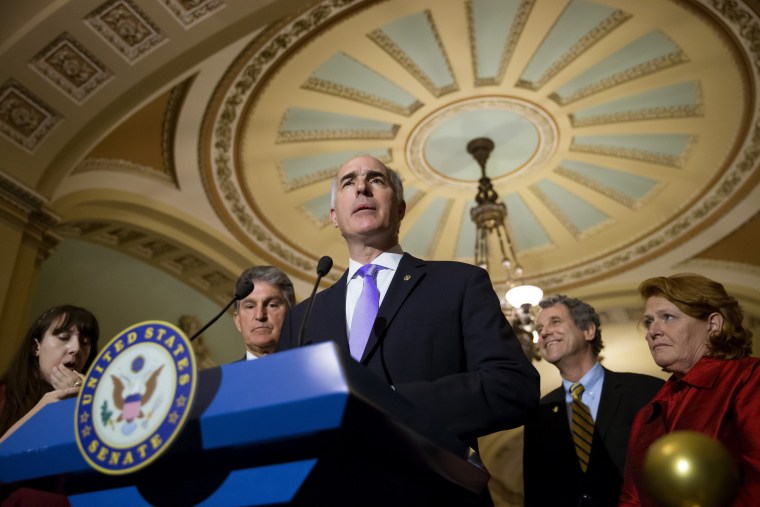At first blush, this Philadelphia Inquirer report, published yesterday, may not seem especially notable. But there's a larger context to this that's important.
As Democrats push to quickly pass a sweeping coronavirus relief plan, Sen. Bob Casey said he's open to moving ahead without Republican support — including by ending the filibuster, the Senate rule requiring 60 votes for most major legislation.... Casey said he's open to ending the 60-vote threshold for advancing legislation, though that step appears highly unlikely, since two fellow Democrats oppose the idea.
This is hardly an uncommon position among Senate Democrats right now, but in 2017, Casey was one of 31 Senate Democrats to sign a joint, bipartisan statement in support of preserving the legislative filibuster. The Pennsylvanian's perspective evolved, however, after evaluating Republican obstructionism under President Barack Obama and the lack of meaningful legislating throughout the Trump era.
"I'm certainly open to that in ways that I would not have said I was two years ago," Casey told the Inquirer. "The Senate doesn't function like it used to and I think as much as I'd like to think that we can go back to those days when consensus and bipartisanship was the rule rather than the exception, now it's the opposite."
Casey isn't alone. Sen. Sherrod Brown (D-Ohio) also signed the bipartisan letter insisting the legislative filibuster must remain intact. And yet, a few months ago, the Ohio Democrat declared, "We've got to eliminate the filibuster."
Sen. Ed Markey (D-Mass.) also endorsed the 2017 statement in support of the filibuster, and he now wants the obstructionist tactic to be abolished.
Sen. Jon Tester (D-Mont.) was also among the signatories, though he told the New York Times this week he's keeping an open mind in light of GOP abuses. "I feel pretty damn strongly, but I will also tell you this: I am here to get things done," the Montanan said. "If all that happens is filibuster after filibuster, roadblock after roadblock, then my opinion may change."
If Democratic senators like West Virginia's Joe Manchin and Arizona's Kyrsten Sinema refuse to even consider institutional reforms, it doesn't much matter, at least for now, what the rest of the caucus thinks. But it's worth keeping in mind that this debate isn't happening in a vacuum: the more Senate Minority Leader Mitch McConnell (R-Ky.) and his members refuse to work constructively on public policy, the more he pushes Democrats to rethink their earlier positions.
